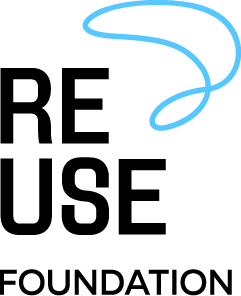Featured
WELCOME TO REUSE FOUNDATION! |
|

|
REUSE Foundation was registered in March 2024 as a charity in the UK with the aim of preventing plastic waste.
REUSE Foundation is a broad coalition that brings together experts in the field, reuse companies, refill brands, entrepreneurs, consultants, practitioners and other motivated individuals and organisations. This diverse group is unified around the need to move to circular solutions to solve the plastics crisis. Not cleanups, not recycling, but prevention. Reuse is widely recognised as the best near-term option to prevent plastic waste, but knowledge about these solutions is patchy, support is low, and many solutions fail to get off the ground. This is where REUSE Foundation comes in. REUSE Foundation aims to prevent plastic waste by advancing reuse. It will serve as a knowledge hub, fund research and campaigns and support innovative solutions, especially in low-income countries. In coming months, we will build our coalition and ready ourselves for launch later in the year. Meanwhile, please read and share the content we’ve made available and if our work is of interest, do get in touch.[Image Credit: © REUSE Foundation] |
Highlights
Unilever Pushes Adoption Of Extended Producer Responsibility To Promote Sustainability In Vietnam |
|
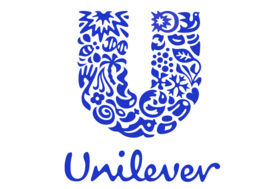
|
Unilever Vietnam is promoting extended producer responsibility as an effective environmental policy aimed at advancing circular economy in plastic waste management in the country. With three years of experience in local EPR, the company built a working plastic management strategy with three main objectives: improving packaging materials to enhance recyclability, reducing the use of virgin plastic and collecting and recycling more plastic on the market. However, the company said the local recycling industry still needs to be developed, with only 33 percent of plastic waste being recycled, due to low demand for post-consumer resin plastic.[Image Credit: © Unilever]
|
UK Study Reveals Discrepancy Between Self-Reported And Actual Plastic Recycling Rates |
|
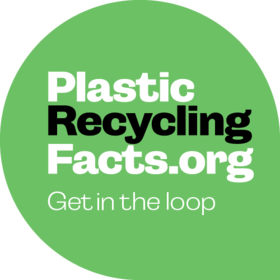
|
In the UK, 60 percent of adults said they always recycle plastic, while 34 percent said they usually do. However, national recycling rates show that these figures are not accurate, prompting the Environmental Services Association and British Plastics Federation to launch the PlasticRecyclingFacts.org campaign. The campaign aims to improve “consumer confidence” in recycling and deal with main barriers to effective household plastic recycling, including time pressure and confusion.[Image Credit: © Plasticrecyclingfacts.org] |
The Sustainable Bottle Co. Offers 100 percent Environment-Friendly Aluminum Bottles For Beverage Industry |
|

|
GUNNA Drinks founder Melvin Jay launched The Sustainable Bottling Co., a manufacturer of aluminum bottle packaging for water, lemonades and other beverages. Jay said plastic bottles is one of the major contributors to single-use plastic waste pollution, a problem his company aims to help solve by providing fully recyclable aluminum bottles. His company plans to manufacture 330ml to 750ml bottles, which offer both convenience and sustainability.[Image Credit: © The Sustainable Bottling Co.]
|
P&G, Dow Join Forces To Develop Recycling Technology For Hard-To-Recycle Plastic Packaging |
|
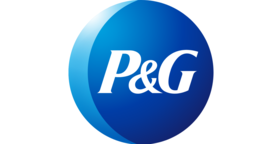
|
Procter & Gamble Company signed a joint development agreement with Dow to create new recycling technology for converting hard-to-recycle plastic packaging into recycled polyethylene with near-virgin quality and low levels of greenhouse emissions. The global partnership starts immediately and involves combining the companies’ respective patented technologies and knowledge bases. Also, the partners will bring their expertise in materials science, manufacturing strengths and experience in management of large-scale supply chains.[Image Credit: © Procter & Gamble]
|
Companies Need To See Sustainability As A Business Opportunity |
|

|
Fast moving consumer goods companies need to understand that complying with sustainability requirements is “not only a moral requirement but also a business opportunity”. Worldwide, 64 percent of consumers are worried about climate change and are trying to have a positive impact on the environment with daily actions, according to Euromonitor International’s Voice of the Consumer: Sustainability Survey. Also, data from Euromonitor Sustainability Products Claims Tracker report revealed that sustainable products outperformed their non-sustainable counterparts in eight of 11 industries in terms of retail sales CAGR from 2020 to 2022. Consumer brands and retailers are redesigning their packaging to improve margins and efficiencies, as well as minimizing their environmental footprint by reducing the amount of raw materials used and total product weight.[Image Credit: © Thomas Richter on Unsplash]
|
Johnson’s Baby Unveils New Refills In Environment-Friendly Packaging |
|

|
Johnson’s Baby introduced 33.8-ounce refills, which come in recyclable packaging made from 88 percent less plastic. Available for the brand’s Bedtime Bath, Baby Shampoo, and Head to Toe Wash and Shampoo product ranges, the refills offer 25 percent more content and cost 15 percent less than similar products that come in 400ml bottles.[Image Credit: © Johnson & Johnson Consumer Inc.]
|
Investigation Reveals Only Small Fraction Of Amazon’s Plastic Packaging Is Recycled |
|
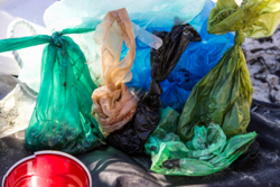
|
Contrary to Amazon’s recycling claim, only a small fraction of the online retailer’s plastic packaging reaches a material recovery facility, according to a published report by the nonprofits Environment America and US Public Interest Research Group. To determine what happens to Amazon’s plastic packaging, researchers attached small tracking devices to bundles of packaging deposited at retailers in 10 states. Results of the analysis revealed that only four of the 93 trackers made it to a material recovery facility that sorts plastics for recycling.[Image Credit: © Brian Yurasits on Unsplash]
|
Aldi UK Reveals Own-Brand Wines That Come In 100 Percent Recycled PET Bottles |
|
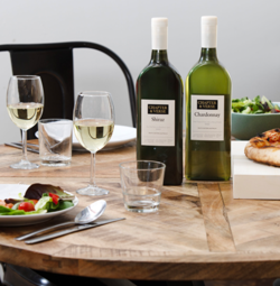
|
Aldi UK announced its own-brand Chapter & Verse Shiraz and Chapter & Verse Chardonnay that come in 100 percent recycled PET bottles, the first of their kind in the country. At just 63 grams, the recycled and shatterproof PET bottles are almost seven times lighter and stronger than their glass counterparts. Also, its compact design allows for 30 percent more bottles to be loaded onto pallets, requiring 30 percent fewer trucks to transport them to supermarkets.[Image Credit: © Aldi] |
Consumer Brands Association Commends US Senate For Passing Legislation Seeking To Improve Recycling Data And Infrastructure |
|

|
The Consumer Brands Association praised the US Senate for passing bipartisan legislation seeking to improve data collection for recycling and composting and increasing rural access to recycling infrastructure. The Recycling and Composting Accountability Act aims to establish reliable and accessible data on recycling and composting nationwide; the Recycling Infrastructure and Accessibility Act seeks to improve recycling infrastructure in the country’s rural and underserved areas.[Image Credit: © Consumer Brands Association]
|
SC Johnson Works With Amazon To Reduce Packaging For Windex Products |
|
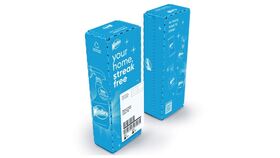
|
SC Johnson partnered with Amazon to launch the Ships in Product Packaging initiative for the Windex brand of cleaning products. SC Johnson was able to reduce its packaging materials by 58 tonnes of paper and 4 tonnes of plastic since the initiative was launched in September 2023. The initiative is one of the strategies adopted by the company to reduce packaging waste and increase the recyclability of plastic waste. Latest research shows that between two and 14 percent of packaging materials are recycled, with the rest going to landfills or to the environment.[Image Credit: © S.C. Johnson & Son Inc.]
|
The Refill Coalition Sees Success With In-Store Standardized Dispenser System |
|
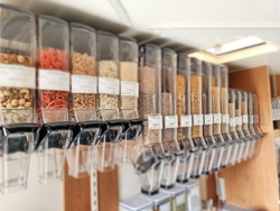
|
After a six-month trial run, The Refill Coalition is expanding its standardized dispenser system to a second Aldi store in the UK. Launched in October 2023, the system features a container designed to be refillable with products from different manufacturers, can be transported to and installed in stores, and refilled at scale. The system lets shoppers bring their own container, use an in-store paper bag, or buy a reusable plastic vessel. Empty containers are collected, cleaned and returned to manufacturers to be refilled.[Image Credit: © Anja from Pixabay]
|
Keurig Announces Plastic-Free Single-Serve Coffee Pods |
|
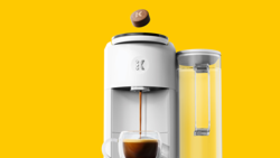
|
Keurig announced the new K-Rounds single-serve plastic-free and aluminum-free coffee pods. The company said the K-Rounds pods are designed for the Keurig Alta, a brewing system currently under development. Also, the company said the new coffee pods will provide a sustainable option for the 45 million American consumers who use Keurig brewing systems.[Image Credit: © Keurig Dr Pepper]
|
Lush Launches Bottle Packaging Made From Certified Prevented Ocean Plastic |
|

|
UK cosmetics retailer Lush partnered with Spectra Packaging to introduce 100ml, 250ml and 500ml bottles made from certified recycled Prevented Ocean Plastic. Shoppers can return empty Lush packaging through the Bring it Back program. Launched in 2021, the recycling program has accepted 2.27 million items, or about 55.5 tonnes of plastic stopped from becoming plastic waste.[Image Credit: © Lush Ltd]
|
Dettol’s Advertising Campaign Highlights Ease Of Refilling Bottles For Cleaning Products |
|
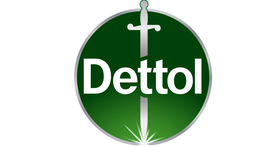
|
McCann London launched an advertising campaign for Reckitt’s Dettol cleaning brand that highlights how any 750ml spray bottle can become a bottle of Dettol with the brand’s Refill range of products. The campaign, “Makes any bottle a bottle of Dettol”, aims to show that refilling does not have to be confusing. It also offers a solution to the “hassle” as a barrier to adoption of refilling cited by 22 percent of consumers, according to Tesco Media and Insight Platform 2022.[Image Credit: © Reckitt Benckiser]
|
Major Laundry Detergent Manufacturers Adopt Plastic-Less Packaging |
|
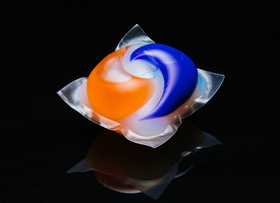
|
Leading laundry manufacturers are cutting their plastic packaging and expanding use of alternatives, including bio-based materials and refillable containers as part of their efforts to achieve their sustainability goals. For example, Procter & Gamble and Clorox claim that at least 75 percent of their packaging is recyclable or reusable. P&G introduced its Tide evo product in a recyclable paper box. Detergent manufacturer Mack worked with UK-based seaweed packaging company Notpla to develop seaweed-packaged laundry sachets.[Image Credit: © Erik Binggeser on Unsplash]
|
SC Johnson And Liverpool FC Win ESA’s Sustainability Sponsorship Award |
|
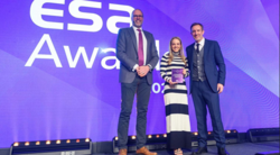
|
Liverpool Football Club and corporate partner SC Johnson won the European Sponsorship Association’s 2024 Environmentally Sustainable Sponsorship Award. The judges recognized the partners’ “At work for a better world” campaign that aims to inspire football audiences and campaign for sustainability. Also, the campaign was aligned with the football club’s The Red Way strategy, which focuses on building a better future for the planet, people, and communities. In particular, the award acknowledges the campaign’s waste-collection project aimed at helping fans learn about plastic waste and promote PET recycling. [Image Credit: © The Liverpool Football Club and Athletic Grounds Limited]
|
Tide To Launch Environment-Friendly Laundry Care Product At SXSW 2024 |
|
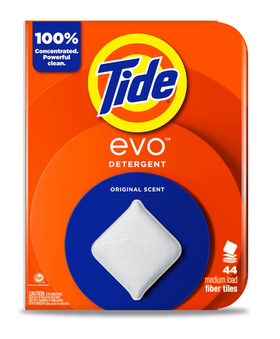
|
Tide plans to introduce its Tide evo laundry care product at the SXSW 2024. According to the brand, Tide evo comes in a laundry tile form and was developed to address consumer demand for a “lighter, faster and simpler” laundry care product. In addition to its innovative form, the product also features six layers of 100 percent concentrated cleaning ingredients. The product is manufactured in a factory powered by renewable energy and includes Forest Stewardship Council-certified recyclable paper packaging.[Image Credit: © Procter & Gamble] |
Survey Shows Young Americans Driving Demand For Sustainable Packaging |
|
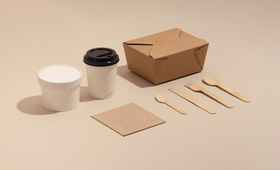
|
In the US, 54 percent of young consumers aged 18 to 34 said they prefer products with sustainable packaging always or often; only 33 percent of respondents 35 and older expressed the same opinion. Details of the 2024 Sustainability and Convenience in Packaging Survey, conducted by Pollfish for ALPLA, revealed that 48 percent of young consumers will not buy products that did not have sustainable packaging and 79 percent of young consumers are willing to pay more for environment-friendly packaging.[Image Credit: © Clair on Unsplash]
|
SC Johnson Chairman And CEO Calls For Federal EPR Regulation During Senate Appearance |
|
.jpg?width=280)
|
SC Johnson Chairman and CEO Fisk Johnson presented to the US Senate Committee on Environment and Public Works the company’s views regarding the federal policies on Extended Producer Responsibility. Johnson said he believes only a “government regulatory framework” can push all stakeholders in the “plastic ecosystem” to work together and effectively in dealing with plastic. He said there are five reasons for this claim: Americans want stronger plastic regulation; complex state regulations will create significant cost and confusion; regulation is necessary in promoting effective collaboration and at scale; continuing growth in landfill waste is unsustainable; and virgin plastic has a greater environmental impact than recycled plastic.[Image Credit: © S.C. Johnson & Son Inc.]
|
Greenpeace, Everyday Plastic Continue Big Plastic Count Campaign In the UK |
|
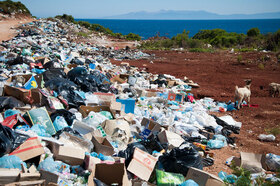
|
Environmentalist group Greenpeace is working with nonprofit Everyday Plastic to hold the second Big Plastic Count in the UK during March 2024. First held in 2022, the campaign seeks to emphasize the volume of plastic waste discarded by households and to call on governments and businesses to deal with the problem. According to Greenpeace and Everyday Plastic, more than 80,000 participants, including 10,000 schools, joined the survey. Results of the 2022 survey revealed households disposed of almost 2 billion pieces of plastic packaging each week and only 12 percent was recycled. 83 percent of plastic waste came from food and drink packaging.[Image Credit: © Antoine GIRET on Unsplash]
|
Smartfill Packaging System Allows Retailers To Sell Packageless Products |
|
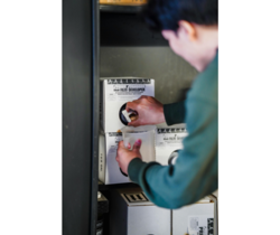
|
Results of test runs for the Smartfill packageless packaging conducted by consumer goods manufacturers revealed that the technology can promote sustainable packaging in the retail industry. Developed jointly by Smollan and DY/DX, the technology is designed to provide retailers with a “smart, efficient and sustainable solution”. South African retailer Spar Tembisa reported the success of a Smartfill pilot that allowed shoppers to buy and pay only for amount of product they wanted. Unilever also implemented a Smartfill pilot, allowing shoppers in Bangladesh to buy products in a packageless format.[Image Credit: © Annushka Ahuja on Pexels]
|
Procter & Gamble Reaches Significant Sustainability And Clean Energy Milestones In India |
|
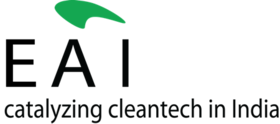
|
Procter & Gamble highlighted achievements related to sustainability and clean energy in India. The company is working with recycling partners across 75 cities in the country to collect and recycle plastic waste. Also, the company achieved “plastic waste neutrality” by recycling 100 percent of its post-consumer plastic packaging waste[Image Credit: © Energy Alternatives India (EAI)]
|
